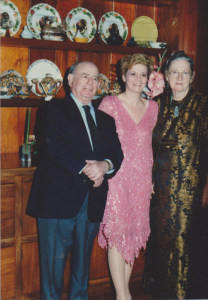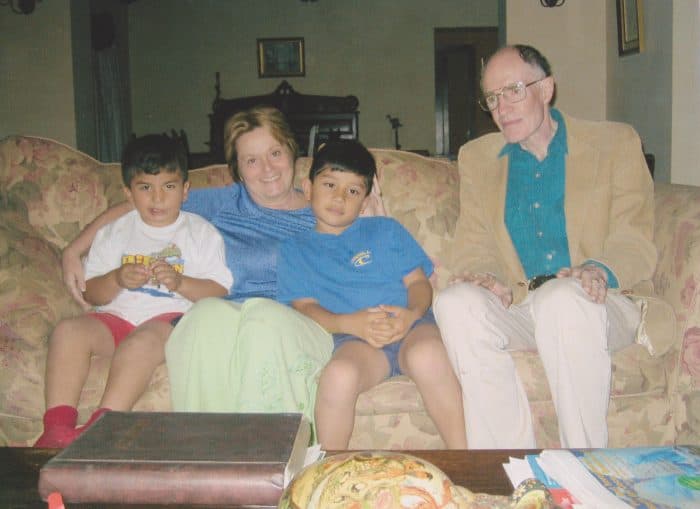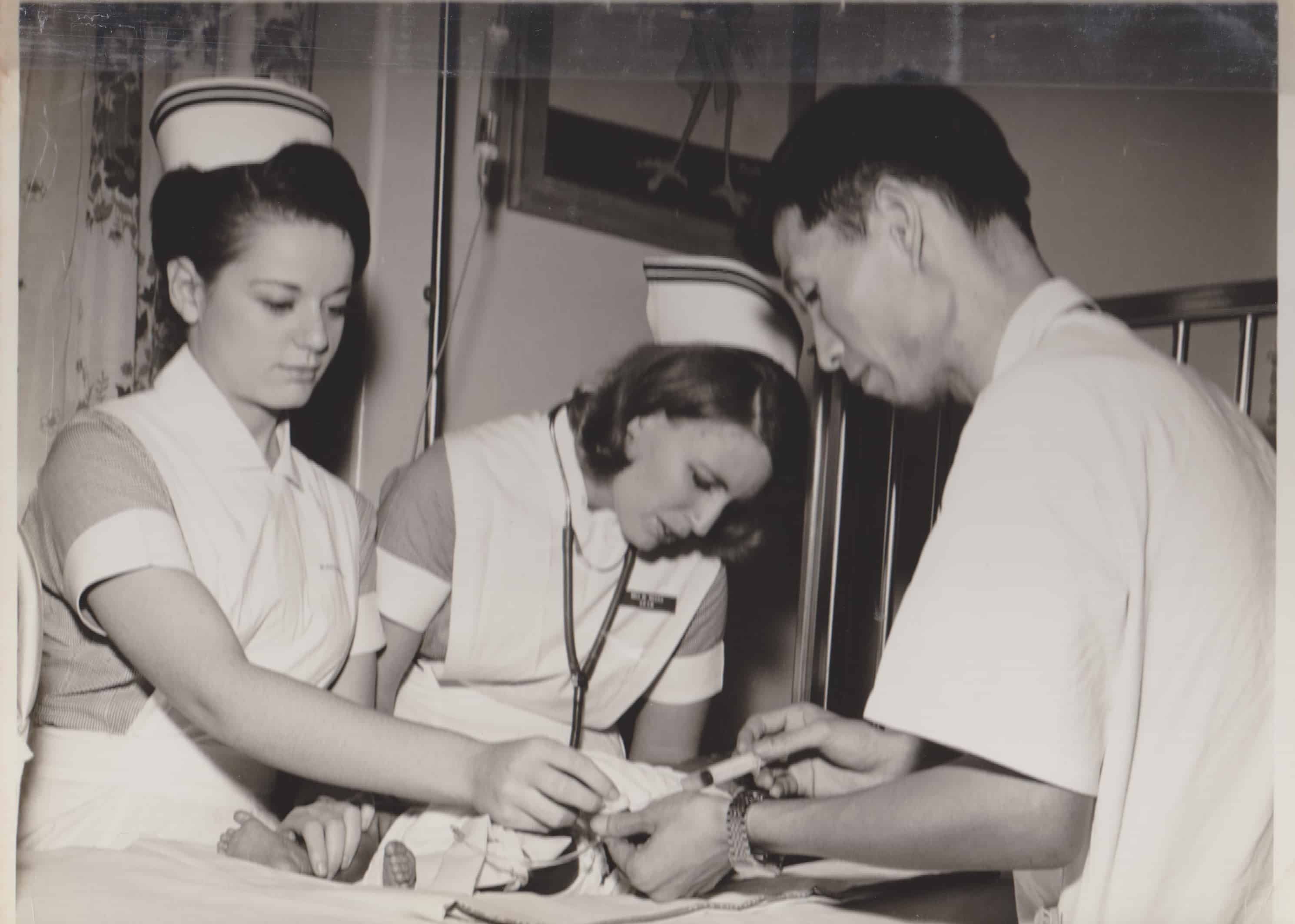This is more of a eulogy than an obituary. An obit is mostly factual, objective and informative. A eulogy is mostly heartfelt praise.
Elaine Fendell, who died on July 17 at age 66 of complications from several autoimmune disorders, deserves a eulogy. I should know: We grew up together.
We met in Panama, where she was born, when she was 2 and I was 3. Our families were on their way to Costa Rica (my parents and I were coming from Brazil, where I was born).
Elaine’s father, J.D. (Jack) Fendell, originally from New York, was Latin American representative for King Features syndicate, which distributed comic strips and columns to newspapers throughout the hemisphere. He also founded the American Colony Committee, of which he was chairman for decades.
Her mother, Ruth, a native of Ohio, was a noted artist and a leader of the local Baha’i community. Her older brother, James (Jim), who now lives in the United States near daughters Eliza and Rebecca and their families, founded several leading local companies, including Aerocasillas, Costa Rica’s first mail forwarding service, which now has branches in numerous other countries.

Elaine also had a “sister”: me. We grew up next door to each other in the houses our parents built on the coffee finca they bought together in the hills of Escazú. We had all kinds of adventures (and misadventures), fought, made up, shared clothes and secrets, stayed up all night giggling…the usual stuff of sisters. We were inseparable until we went off to school in the States, and then we wrote each other endless long letters.
From the time she was able to talk, Elaine talked about becoming a nurse and helping people. She was utterly clear and single-minded about this. She wanted to serve humanity. (This awed me, since the only thing I was clear about was that, whatever I ended up doing, I didn’t want to be bored.)
Elaine graduated with honors from nursing school in Florida and went on to a distinguished career in nursing, eventually becoming head nurse in a series of large hospitals in the Midwestern U.S. She did this while getting her college degree and helping put her first husband, Gary Hogenson, through graduate school.
She eventually moved back to Costa Rica with Gary. When the 1972 earthquake destroyed Managua, Nicaragua, she volunteered to help the victims and spent several months there.
Ever the idealist, she decided she could do more good by becoming a doctor. She graduated from the University of Costa Rica medical school, working in the Social Security System and opening a family practice. Many of her private patients were poor campesinos whom she attended for free.
Like her mother, Elaine was a lifelong Baha’i, though she also honored her Jewish heritage from her father’s side and respected all religions. Her home was ecumenism in action: She celebrated Christmas, Hanukkah, Baha’i New Year and more.
She and Gary split up, but remained good friends even after both remarried and Gary moved to Haifa, Israel, to serve as a Baha’i executive.
At age 50, Elaine decided she wanted to become a mom. She adopted David, and a year later, Isaac. Both babies had been born with severe health problems that required operations and constant care; her medical training ended up saving their lives. Raising them became her life’s mission, and she loved the job.
Enter Henry Lanz, who became her second adoring husband and the devoted dad of her boys. He was also her dedicated caretaker during the last years of her life, when she was in and out of hospitals and bedridden much of the time.
Elaine had more than her share of suffering. A car accident left her in chronic pain and required several operations; trusting the wrong people led to disastrous financial losses. Sometimes she’d fall into despair, and then she could be temperamental and self-absorbed. But she was a warrior: Her essential kindness and warmth always won out.

Deeply spiritual, she had an earthy side that kept her unapologetically human and able to empathize with the vagaries of the human condition – except for the big ones. She often tormented herself wondering about things like war, bigotry, cruelty to animals, hypocrisy, dishonesty. She could never understand why the rest of the world couldn’t measure up to her own impeccable standards of integrity and right action.
She was brilliant. She was totally bilingual – so at ease in both languages that she was often called to serve as a simultaneous interpreter for medical conferences. And she was completely bicultural (we used to call it “cultural schizophrenia”), slipping back and forth between Tica and Gringa continuously, alternately proud of or exasperated by her two cultures.
She was very much “old Costa Rica” in her friendships with the people she employed – they were never “servants,” they were family, and their families were her extended family. Her campesino neighbors were among her closest friends. At her funeral, these were the people who not only showed up, but stood up to give emotional tributes to her.
As I am doing now – because, like them, I benefited countless times from her huge heart. She loved intensely, loyally and totally – her family, her friends, humanity – and animals. Her house was always full of beloved strays, who loved her as much as she loved them.
Elaine also had the most finely honed sense of the ridiculous I have ever encountered. She could be so hilarious that she could transform even the most somber moment into the kind of belly laughs that leave you wiping your eyes and clutching your sides.
She made a lot of lives a lot brighter. What a legacy! As one longtime admirer put it this week: “I’ll always remember her as a beautiful person, and a gorgeous woman.”
She would have loved that. And it was all true.
Condolences may be sent to Henry, David and Isaac Lanz at hklanz@yahoo.com.






